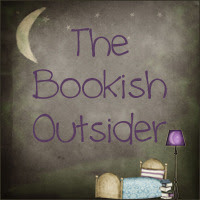Top Tips (and When to Ignore Them)
Mark A Latham
When you’re an aspiring writer, everyone wants to give you advice. And because you’re aspiring, you soak it up like a sponge (or, at least, you probably should). The problem is that when I say everyone, I mean everyone. No matter what level of writing success a writer has or hasn’t achieved, or whether they’ve even published anything beyond that self-help book gathering dust on a Waterstones shelf, they’re still ready to throw advice at newbies. The old chestnuts are there – Find your voice! Show, don’t tell! Think about POV! Don’t use too many exclamation marks! (Cough).
However, when you actually get down to the nuts and bolts of writing and start to get your work out there for public consumption, you’ll often realise that large swathes of the advice you were offered were simply… irrelevant. I certainly did. Sometimes, by trying to obey the rules, you end up hamstringing yourself, rather than find your own path. Only by failing, do we learn, young padawan. (Cough, again).
So I’m not going to offer you any advice in this blog. Well, I am, but not like that. No, I’m simply going to pass on the best bits of advice I ever received – things that I actually think on regularly, and that have stuck with me.
Never Compromise!
This is a recent piece of advice I heard from SF author Rob Boffard, which is similar – but not quite the same – as Stephen King’s famous quote ‘first write for yourself, then the audience’. What he’s saying is, if you love writing a certain way (in his case, rip-roaring, fast-paced actioners; in my case, atmospheric and macabre stories), don’t change because people don’t like your style. He’s not saying ‘never listen to criticism’. He’s saying ‘find the audience that loves the style you write in, and write for them’. People telling Rob to write some slow, atmospheric scenes is like people telling me to write a happy ending full of rainbows and ponies. Ain’t gonna happen.
Never Respond to Negative Reviews
I’ve heard this many times, and boy is it true! Learn from them. Shout at them. Get mad. Get upset. Or just ignore them… whatever. Bad reviews are part of life. Some of them will come about because you genuinely messed up, and that mistake was unforgivable to a particular reviewer. Some will be because the reviewer just doesn’t get what you’re about, or missed some nuance in the story that other readers were okay with. It doesn’t matter. If you are in any doubt as to whether or not you should ever respond to criticism on the internet, just Google Stephan J Harper, read the tale of woe that follows, and think again!
Listen to your Editor
Hmm, turns out this gem actually is mine. So I lied, I am going to give you advice. A good editor is everything to a good book. Well, not everything – you have to write the damn thing first. But a good editor will help you make it shine. What do I mean by ‘good’ editor? One who works with you in a two-way process. One who has a clear understanding of your vision, a clear vision themselves of how the book will be positioned in the marketplace, and who the target audience is. Only then can they truly advise and guide you. And the process can be painful – you might decide to ignore some of their advice, or find a different solution than the one they suggest, but do so as part of an open and collaborative process, rather than from a position of defensiveness, and the book will be better for it.
And finally, one from Stephen King himself:



















No comments:
Post a Comment
Comments are great so please feel free to leave one! If you leave a link to your blog I will come and visit your blog!